IDEAS FUND - NORM WELLBEING PROJECT
Background context
Youth Aspire Connect (YAC) received a generous grant from the British Science Association (BSA) in 2023 AND 2024 to examine the barriers to Normalising Mental Health and wellbeing conversations among young people from Black, and Minoritised Ethnic (BME) communities and co-create a toolkit to support and empower parents and religious/community leaders in initiating conversations with young people and their families on mental health and wellbeing issues. YAC worked with two researchers from the University of Hull and the University of Hertfordshire. This project is part of the 26 community projects funded by grants from The Ideas Fund. The Ideas Fund is a grants programme run by the British Science Association and funded by Wellcome, which enables community groups to work with researchers to develop and try out ideas that address problems related to mental well-being in their communities.
Mental Health and wellbeing is a “taboo subject” within many BME communities. Children and Young people expressing feelings and emotions relating to mental health and well-being could be seen as a sign of weakness and not encouraged to speak or seek help/support, which prevents them from accessing early intervention. Most parents, carers, and community leaders in BME communities do not have the necessary knowledge, skills, and resources to kickstart conversations around mental health and wellbeing.
Normalising conversation around Mental Health allows young people to express their feelings/emotions, which impact their overall mental well-being.
The Phase 1 and Phase 2 of our two-year funding came to an end in January 2025 and this brief document sets out what has been achieved and what are our next steps to expand and develop innovative interventions to improve young people’s mental health and wellbeing in Hull.
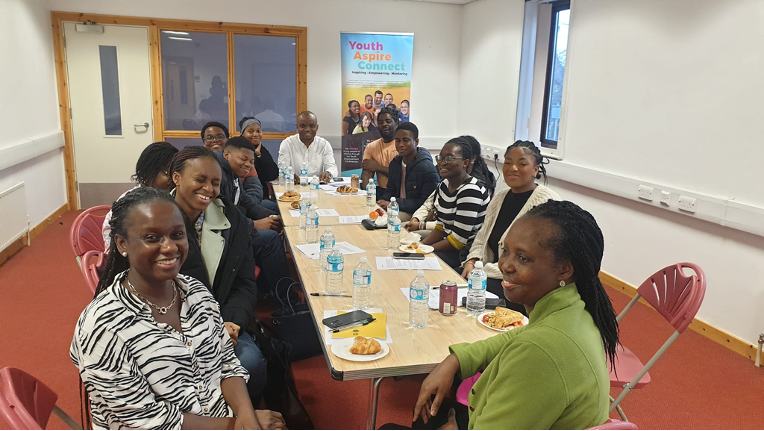
What we achieved in phase 1 of the NORM Wellbeing Project
- 1. Developed a young people research advisory group made up of 16 young people which will be integrated within the Engagement Hub at the University as part of the Ideas Fund (IF) infrastructure work happening at the University of Hull
- 2. Trained and upskilled 16 young people from the Black and Minority Ethnic (BME) communities on the principles of knowledge exchange, research process, data management principles, and research ethics.
- 3. Trained 52 young people on Mindfulness and breathwork techniques to equip them with the tools/techniques to manage their emotions led by a Clinical Psychologist
- 4. Carried out a range of knowledge exchange activities across Hull and East Yorkshire, including knowledge sharing at the Northeast and Yorkshire Children and Young People's Mental Health Development Forum, and Children's Services Improvement Board in Hull.
- 5. One of our partnership projects connected through Ideas Fund Development Co-ordinators in Hull received media attention (BBC News Look North, BBC Radio Humberside) and was used in local councils (e.g. Hull City Council), Universities (e.g. School of Education University of Hull; Leeds Beckett Centre for Race Education and Decoloniality) and national government agencies (e.g. Environmental agency; Humberside police) as a training resource to inform policy and EDI training.
- 6. Held 14 project development meetings with young people, community members, and Researchers to exchange ideas and share knowledge
- 7. Organised several community engagements activities that promote young people's mental well-being involving religious and community leaders in Hull facilitated by the researchers with input from the community group
- 8. Conducted 13 interviews (7 parents, 4 community leaders, 2 religious’ leaders) to understand the barriers parents face having conversations around young people's mental health and wellbeing, which guided our decision-making surrounding resources needed by the community
- 9. Conducted 2 Focus Group Discussions (FGDs) with 18 young people aged 11-18 years to effectively establish an understanding of a range of mental health issues affecting young people in the Hull BME community.
- 10. Launched two online surveys for parents and young people to assess the mental health burden among young people from the BAME community.
- 11. Conducted 4 co-creation workshops involving 10 parents, 5 community leaders, 5 young people, and 2 researchers to develop interventions to address the barriers to normalising conversation around young people's mental well-being
- 12. Co-developed a mental health and wellbeing resource booklet to be distributed to 500 BME parents in Hull informed by the co-creation workshop
- 13. Currently drafting 4 articles/research papers as a way of disseminating our learning to the wider academic community- sharing what works and doesn't work when engaging with the BME community.
RESEARCH CARRIED OUT:
This study adopted a participatory research (PR) approach using a mixed methods design to gather data from young people, parents, and community/religious leaders who have lived experiences.
We conducted 2 Focus Group Discussions (FGDs), and 14 in-depth interviews with young people and parents to explore young people’s experiences of having a conversation around their feelings and emotions with their parents or carer. The interviews with parents explored the perception of parents and community leaders about mental health and the challenges they face discussing young people’s feelings/emotions.
We launched an online survey to gather baseline information to assess the level of anxiety and depression, help-seeking behaviour, and barriers to discussing mental health and wellbeing issues among young people using the Revised Children’s Anxiety and Depression Scale (and Subscales) (RCADS). 195 young people completed the online survey.
We conducted two co-creation workshops. The first co-creation workshop was held on the 4th of November 2023 involving 10 parents/community leaders, 5 young people, and 2 researchers. The researchers, parents, community leaders, and young people developed interventions to address the barriers to normalising conversation identified during the interviews/FGDs. The second co-creation workshop took place on the 11th of November 2023 involving 6 young people, 9 parents, 2 community leaders, and 2 researchers. The group worked together to come up with innovative interventions to address the barriers identified in the first workshop and the mode of delivery of the interventions.
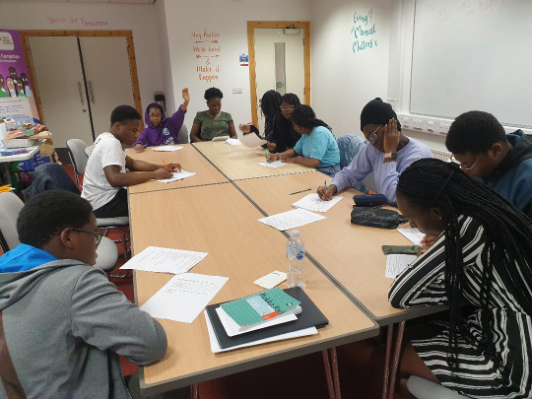
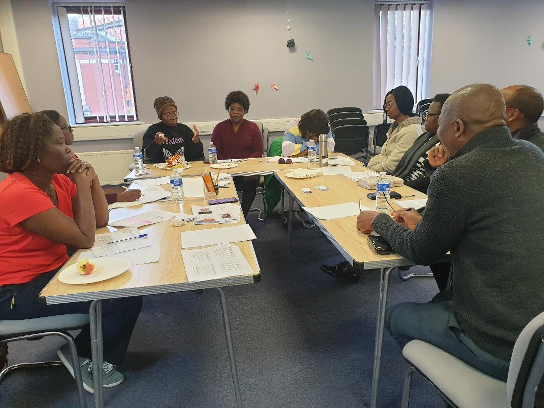
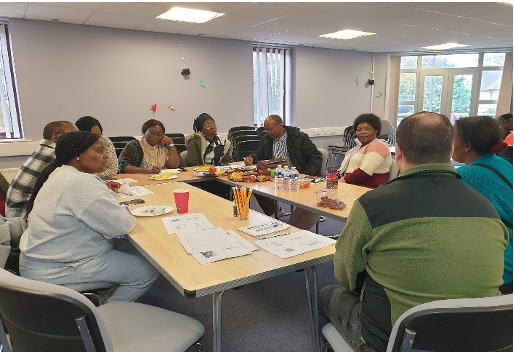
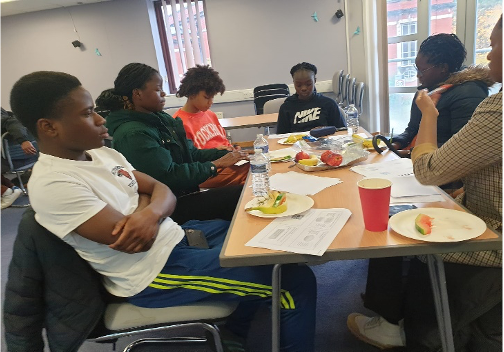
Our Key findings
Barriers to having a conversation or expressing feelings/emotions are:
Lack of knowledge/understanding mental health
Parents lack understanding of what mental health is about and do not know how to support young people experiencing emotional difficulties. ” Because they don’t have the knowledge, they might even shut you down to stop talking about your feelings; saying you need to grow past it”. “Parents do not know even how to go about having the conversation”. (quotes from parents)
Communication (Parenting styles)
Parents lack the skills to initiate conversation around feelings/emotions and lack the skills to build rapport/ relationship with young people. “Communication is a real issue because things are perceived differently so the child doesn't understand where the parent is coming from, and the parent doesn’t understand where the child is coming from”. “Some parents don’t have a close relationship with their children”. (Quotes from parents)
3. Lack of Confidence/emotions
Young people try to avoid having conversations about their feelings/emotions and sometimes they lack the confidence to open up. “Sometimes young people don't have the confidence to open up the conversation” (quote from young people)
4. Stigma - fear of being Labelled or Judged
Young people are afraid of being labelled or judged if they discuss their emotions/feelings with their parents or adults. On the other hand, parents are being afraid of their child being labelled. “So, they might feel like they don't need to tell anyone about it because people might make fun of them and judge them; making them feel helpless”.
5. Racism / Belief about societal perception:
Parents and young people believe that they are being ignored and not listened to because of their ethnic affiliation. “In this society, our concerns are being ignored all the time. When our children raise concerns, they say just ignore it or you are over-reacting, or you are overthinking it because the society doesn't listen to us. “I am black, people would not listen to me. People would rather side with others and think that I am the one at fault.” (Quotes from parents)
6. Racism – Belief about the Consequences- protective factors
Parents belief that discussing young people’s emotions will make them weak and not build resilience to overcome societal barriers. Parents perceived racism to be an inevitability. And as such consider avoiding conversations about feelings to be s strategy to keep their children strong in a society that they need to be tough to survive. “Be a proactive parent, encourage parents to talk about their own experience, Emotional management.
Key findings from the survey
A total of 195 young people completed the survey. Of the 195 young people, about 23.1% were aged 10-14 years, 14.9 aged 15-17 years, 26.7% aged 18-24 years and 35.4% were aged 25 years and above. About 42.6% young people said they worry about things. According to the survey result, 24.1% of the young people said they worry that something bad will happen to them. 26.7% reported that they often feel sad or empty. About 25.6% of young people and 11.3% often and always feel that nothing is much fun anymore for them. 35.9% of young people reported that they are bothered by bad or silly thoughts or pictures in my mind and 39.5% have trouble sleeping. About 44.4% of young people that completed the survey said they cannot seem to get bad or silly thoughts out of their head.
COMMUNITY ENGAGEMENT PROGRAMME/ACTIVITIES
We organised a series of community engagement activities with parents and extra-curricular activities for young people. We created a safe environment for both parents and young people to share their experiences. Most of our learning came from the community engagement activities and built good communities of practice. Our collaborative approach to solution-finding means that we know what young people and parents collectively would like to see implemented in the community to combat the issues that were highlighted during the community engagement.
Community engagement activities with parents
As part of our effort to address challenges that affect members of the BME communities’ health and well-being, we held a series of workshops led by experts in parenting, education, and social services. The parenting workshops focused on the issues around the child protection system in the UK and parenting in a multicultural context. The workshops helped parents who were struggling to raise their kids in a multicultural environment, especially to understand how their parenting style and strategy can effectively support their child’s well-being – this has also led to high demand in a parenting course specific to those from minoritised groups.
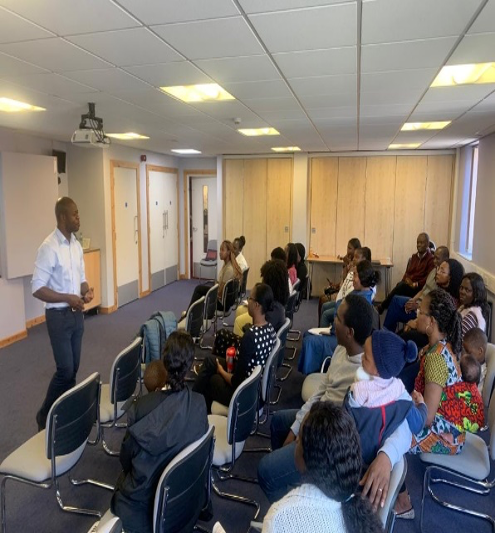
These workshops helped parents to understand how their parenting style and strategy can effectively support their young people’s well-being – this has also led to high demand in a parenting course specific to those from minoritized groups.
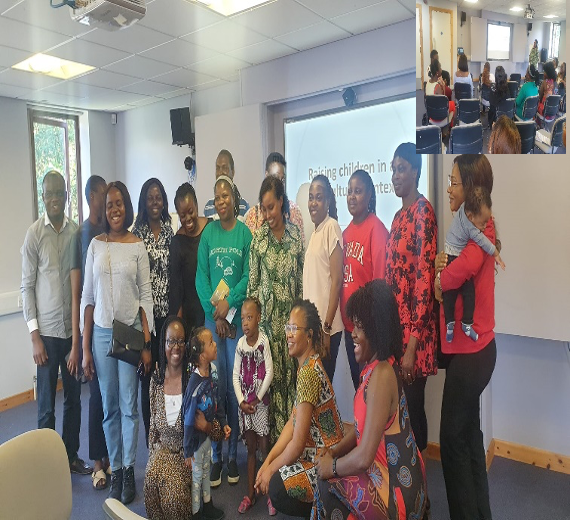
“Parents told us during the community engagement workshops that raising a child in a multi-cultural society is one of the biggest issues that threaten their mental health and wellbeing”.
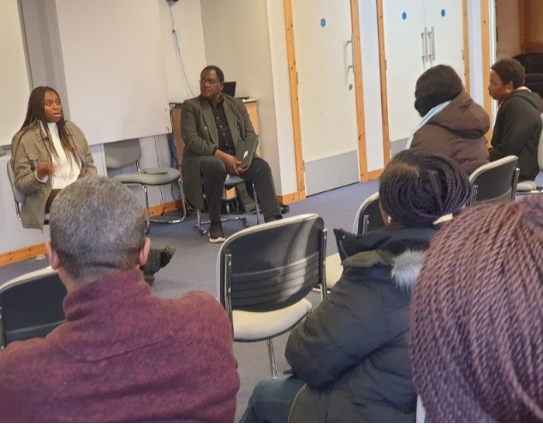
“The community engagement activities helped us to effectively establish an understanding of a range of mental health issues affecting young people in the Hull BME communities
Community engagement activities with young people
As the Ideas Fund (IF) is based on collaborative work, we effectively engaged young people throughout the project. The young people showed interest in the project and its outputs through continued involvement. Young people were trained on range of topics including Mindfulness and breathwork techniques, Research methods/processes and Knowledge Exchange principles. The young people advisory research group played an active role in the development of questions and strategy for understanding views of parents and young people surrounding mental well-being and emotions.
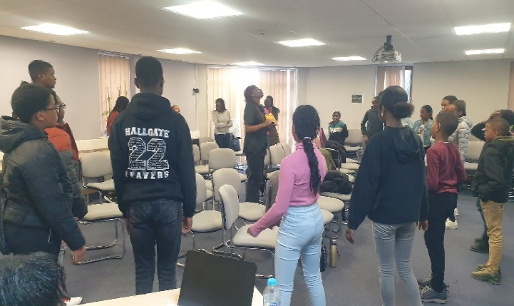
Trained 52 young people on Mindfulness and breathwork techniques to equip them with the tools/techniques to manage their emotions led by a clinical psychologist.
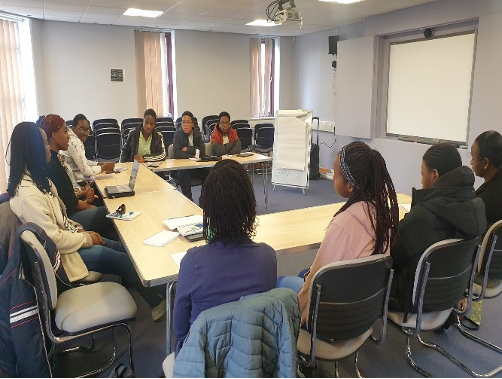
Trained and upskilled young people on Research Processes, data management and Knowledge Exchange principles.
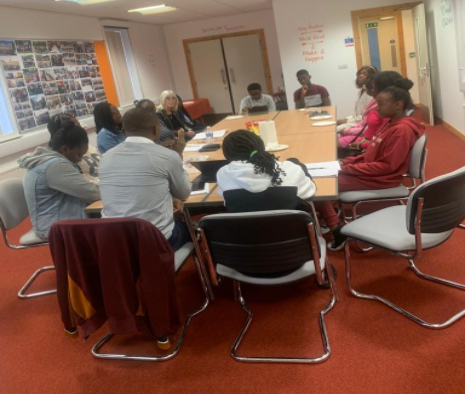
The NORM Wellbeing Project team had a series of meetings with Dr Gill Hughes who have been supportive throughout the phase 1 project.
Feedback and lesson learnt from young people.






